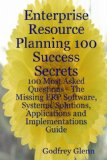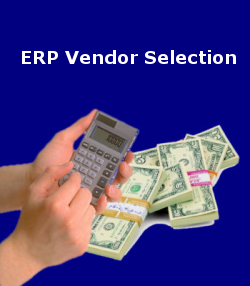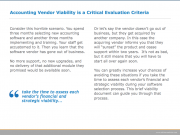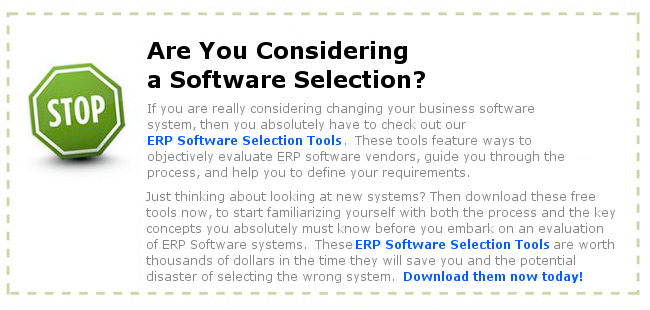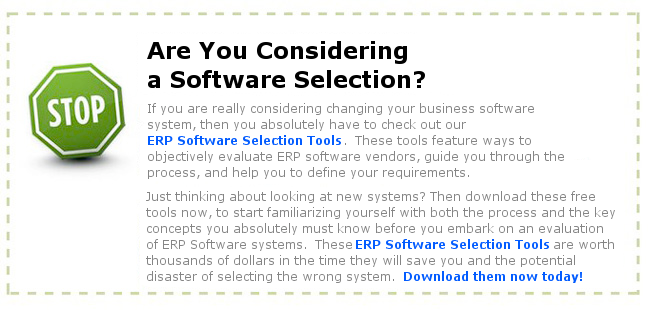Defining your ERP Evaluation Criteria is essential for paring down the vendors and getting to the final choice. There are two focus areas for determining your selection criteria:
Determining your ERP Evaluation Criteria
1. ERP Evaluation Criteria – Process
The Process analysis for determining your ERP Evaluation Criteria is the method you would use to determine the flow of data through the system and how it would follow along your established or to-be business processes. For example, following a process flow of quoting an order, receiving the order, manufacturing or purchasing the product, shipping, and finally invoicing the order is known as the order-to-cash process flow.
There are other anther ERP Evaluation Criteria processes such as procure-to-pay, which maps the inventory requirement through the accounts payable billings. Another example could be the HR process of recruiting though retirement.

Using Process Flow documentation to determine your ERP Evaluation Criteria
By mapping out these processes in a tool such as Microsoft Visio Standard 2010 and developing a detailed flow diagram, you will have a good understanding of how your business operates. With this knowledge, your evaluation of various business management software will be a lot easier. Further, you can see how closely the software’s process flow mirrors your company’s or how disjointed the software is when it comes to your business.
2. ERP Evaluation Criteria – Functional
ERP Evaluation Criteria for the system is the detailed list of all of the things you need the system to do, from processing purchase orders, processing a sales order, to invoicing a client and producing financial reports. These are the nitty gritty things that your system should do. A good place to start is to evaluate your current system. What are the functions that the current system does well? Include these in your list. What are the things that your system does poorly, include the desired functionality in your list.
Your list should not be 10,000 lines, but rather it should look at those items that make your business unique. For example, most every business has to cut A/P checks. So most systems can do that. So do not list as a requirement that the software should be able to cut A/P checks, rather make your requirement specific to your company, such as “System should be able to cut 3 copy laser checks, with reprint capability.” That very specific requirement will help you distinguish the vendors from one another.
A good place to start is with an ERP Evaluation Criteria Template. ERPandMore has many different templates to assist you in evaluating various ERP software venders and have best practices built in. In using these as a starting point, you will save yourself countless hours in both preparing these criteria templates as well as in differentiating the vendors your are looking at. We hope this has helped to answer How to determine your ERP Evaluation Criteria

